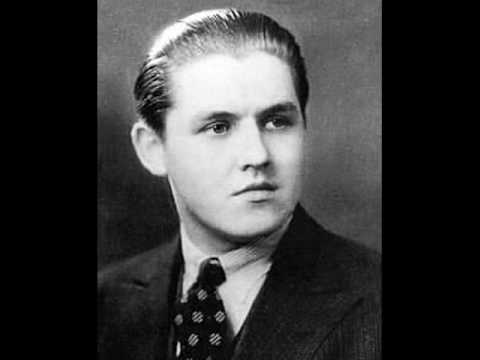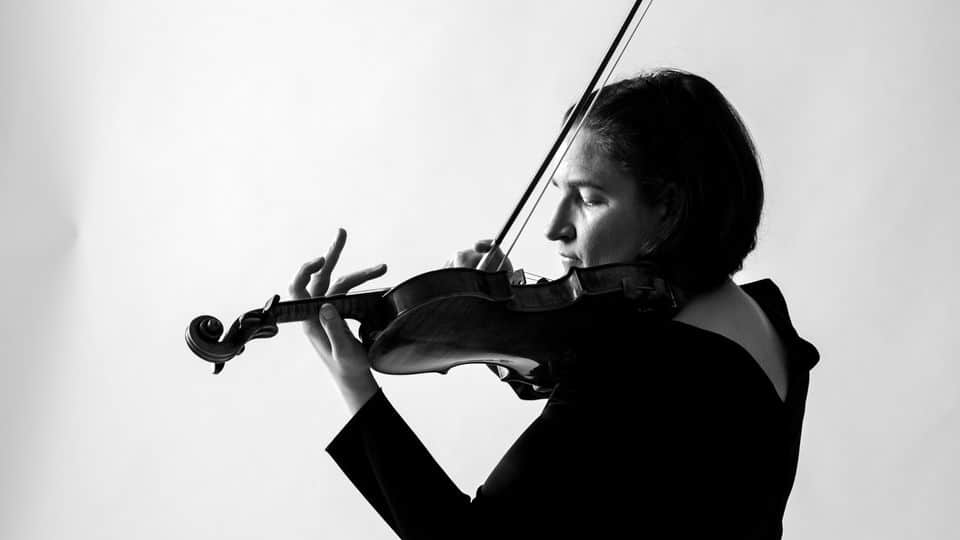The Slipped Disc daily comfort zone (1)
mainThe pianist is Harry Ebert. The interpretation, on the eve of war, is out of this world.

Please add your own suggestions for future zone posts in the Comments space below.

The pianist is Harry Ebert. The interpretation, on the eve of war, is out of this world.

Please add your own suggestions for future zone posts in the Comments space below.
The US violinist has posted this message on…

The Dutch conductor, ousted after a six-year spell…

English National Opera has rolled out plans for…

Laura Samuel, Leader of the BBC Scottish Symphony…

Session expired
Please log in again. The login page will open in a new tab. After logging in you can close it and return to this page.
A Swede, he studied with Alfred Cortot in the years 1919-1924 .
Thank you Norman
True, but then what else one expects from this singer. It is easier for us now to identify at least to some extent with the times in which this was recorded We ourselves have just entered into the most significant life changing event since the second world war. This I am convinced is the beginning of a new phase in history, which will soon be combined with the effects of climate change to take us into a totally different world. I don’t believe the world will quite be the same once we protect ourselves from this virus.
Comfort in Bach-Liszt in the hands of Maria Yudina? Why not.
https://youtu.be/zjgRa8grRtM
Thank you. This is special.
The likes of this tenor will hardly ever be repeated.
what a fine Rudolfo he was!
Dinu Lipatti anything. My first choice: Ich rufe dich Herr Jesu Christ.
Then again, the recordings are deservedly well known.
A couple of suggestions NL – Lascia la Spina (Handel) sung by Cecilia Bartoli, and Du bist die Ruh (Schubert) sung by Barbara Bonney.
thanks
https://www.youtube.com/watch?v=31CtNc0Zp2c
My offering, social distancing comes together in the end.
Wonderful! The first 2 times I went to the old Met, Nov.1959, I heard Bjoerling in Cavalleria and the following Saturday matinee, Tosca.Still my favorite tenor.
J.S. Bach. ”Dir, dir Jehova will ich singen”, BWV 452.
If possible that good old recording with Agnes Giebel accompanied by Gustav Leonhardt.
not to mention the Philly recording of Verdi Req
the definitive ‘Ingemisco’
Instrumental music:
Beethoven, Op. 132, Heilige Dankgesang
Schubert, String Quintet, final movement
Faure, Ballade (either piano solo or with orchestra)
…
Bjorling’s Adelaide of similar vintage could as easily be listed.
My nominees, all findable on YouTube:
Rumanian Petre Munteanu singing “O del mio amato ben” with Michael Raucheisen on piano, circa 1953. A couple of versions of the same recording are on YouTube. No rendition known to me is more tender or eye-moistening.
Belgian Andre d’Arkor singing the Romance from Maitre Pathelin circa 1931. Likewise, multiple versions. One of the great tenors of his era, which was an era of marvelous tenors.
The 1930s Philadelphia Orchestra recording under Stokowski of the “Berceuse” from the Tempest music by Sibelius. Not the LP remake circa 1950. I have never heard recorded string playing remotely like it.
Fritz Kreisler playing the opening Adagio from the first unaccompanied Sonata of Bach. Some YouTube versions are incorrectly pitched. Played and phrased only with regard to beauty, not notions of correctness.
Lovely; thanks, Norman.
I find equally lovely (believe it or not), John McCormack’s 1924 version with Fritz Kreisler.
https://www.youtube.com/watch?v=rx6fc6QyW7M
McCormack I think was typecast, which is a pity. He was very versatile.
BTW, James Joyce (of “Ulysses” fame) had the same singing teacher as McCormack, and McCormack encouraged and mentored Joyce as a singer.
McCormack won the gold medal in the Irish national singing competition of 1903. James Joyce (really, I am not making this up) won the bronze medal in 1904, but the consensus was that he would have taken home the gold, but for the fact he blew off the sight-reading requirement. Didn’t even try.
https://www.feisceoil.ie/About-Us/history.asp